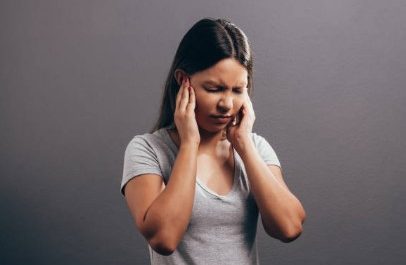While it’s important to consult with a healthcare professional for proper treatment of an ear infection in adults, there are some home remedies that may help alleviate symptoms.
Apply a warm compress
A warm compress can help soothe ear pain and reduce inflammation. You can use a clean cloth soaked in warm water or a heating pad on low heat. Be sure to test the temperature of the compress before applying it to the ear to avoid burns.
Use over-the-counter pain relievers
Over-the-counter pain relievers such as ibuprofen and acetaminophen can help reduce pain and fever associated with ear infections. Follow the recommended dosage on the label and check with a healthcare professional if you have any questions.
Use garlic oil drops
Garlic has natural antibiotic properties that can help fight ear infections. You can crush a few garlic cloves and mix with warm olive oil to make garlic oil drops. Put a few drops into the affected ear, let it sit for a few minutes, then tilt your head to allow the oil to drain out.
Use apple cider vinegar
Apple cider vinegar has antimicrobial properties and can help restore the natural acidity of the ear canal. Mix equal parts apple cider vinegar and warm water and use a dropper to put a few drops into the affected ear. Tilt your head to allow the solution to drain out.
Try tea tree oil
Tea tree oil has antibacterial and anti-inflammatory properties that may help alleviate symptoms of ear infections. Mix a few drops of tea tree oil with a carrier oil such as olive oil or coconut oil, and apply to the outer ear canal with a cotton swab. Do not put the oil directly into the ear canal.
It’s important to note that home remedies are not a substitute for proper medical treatment, and should be used in conjunction with medical care. Consult with a healthcare professional before trying any home remedies for ear infections.
Other Herbal Remedies for Ear Infection
While there is limited scientific evidence on the effectiveness of herbal medicine for ear infections, some people may find relief from using certain herbs. Here are some herbal remedies that may be used for ear infections:
Mullein oil
Mullein oil is derived from the flowers of the mullein plant, and is often used to relieve ear infections. To use mullein oil, warm the bottle by placing it in a bowl of warm water, then put a few drops into the affected ear using a dropper. Tilt your head to allow the oil to reach deep into the ear canal, then use a cotton ball to absorb any excess oil.
Tea tree oil
Tea tree oil is an essential oil with antimicrobial and anti-inflammatory properties. To use tea tree oil, mix a few drops with a carrier oil such as coconut oil or olive oil, then apply to the outer ear canal with a cotton swab. Do not put the oil directly into the ear canal.
Echinacea
Echinacea is an herb commonly used to boost the immune system and fight infections. You can take echinacea supplements or drink echinacea tea to help prevent and treat ear infections.
Garlic
Garlic has natural antibiotic properties and can help fight infections. Crush a few garlic cloves and mix with warm olive oil to make garlic oil drops. Put a few drops into the affected ear, let it sit for a few minutes, then tilt your head to allow the oil to drain out.
It’s important to note that herbal remedies are not a substitute for medical treatment, and should be used in conjunction with medical care. Consult with a healthcare professional before trying any herbal remedies for ear infections.
Why is Herbal Remedies Good for Ear Infection?
Herbal medicine is believed to be helpful for ear infections due to the anti-inflammatory, antimicrobial, and analgesic properties of some herbs. For example, mullein oil is thought to help reduce inflammation and relieve pain in the ear, while tea tree oil has antimicrobial and anti-inflammatory properties that may help fight infections and reduce inflammation. Echinacea is believed to help boost the immune system, which may help prevent ear infections or speed up recovery from an infection.
It’s important to note that while herbal medicine may be helpful in treating certain conditions, there is limited scientific evidence to support the effectiveness of many herbal remedies, and some herbs may interact with medications or cause adverse reactions. It’s always important to consult with a healthcare professional before trying any herbal remedies for ear infections or any other health condition.





